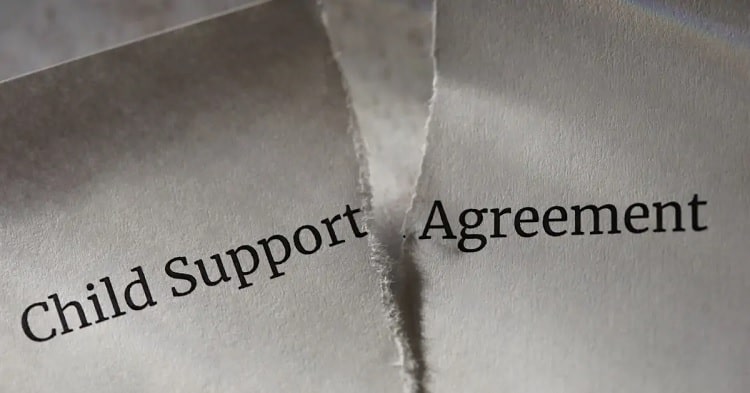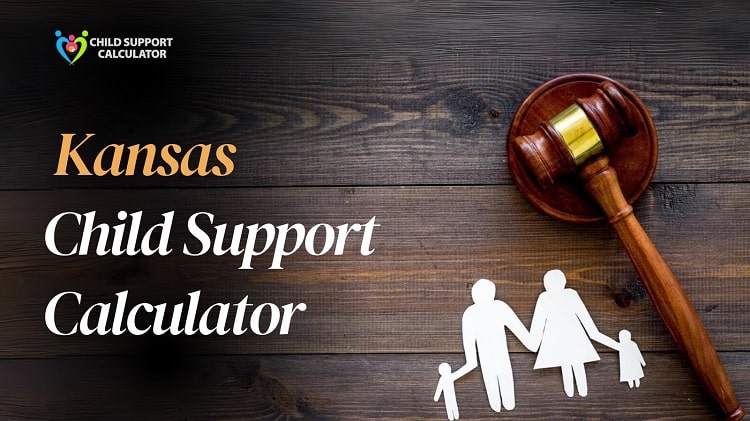Missouri Child Support Calculator | Guidelines – 2024
Missouri child support calculator is designed to guarantee that both parents can financially support a kid and that the youngster can live up to the same standards as if the parents were still living together. So, if you’re curious about how child support is determined, here’s what you should know.

- The Child Support Amount Calculation Sheet, often known as Form 14, is widely used to compute child support payments. When it comes to setting up prices, Form 14 is crucial. It generally includes computations that take into account:
- The number of minors involved in the case.
- The combined monthly income of both parents.
- Each parent contributes to work-related child care, child health insurance, and any other agreed-upon expenses, such as unusual medical costs.
- The number of overnight visits the non-custodial parent receives each year.
The receiving parent is required to spend their part of the estimated responsibility on the kid directly. On the other hand, the paying parent is expected to pay their share to the other parent.
If the parents want to deviate from Form 14, they can do so in an uncontested lawsuit or through a settlement. Judges, in numerous instances, typically order the Form 14 sum. If the data suggests that a different quantity would be more acceptable and better satisfy the child’s requirements, the parents may diverge from it.
Missouri Child Support Calculator Basis
Sophisticated computation is frequently used to determine the amount of child support payments. Even though Missouri has a Schedule of Basic Child Support Obligations, each case is distinct and unique.
A judge is typically required to adhere to this schedule. Child support laws, provide several parameters for a court to determine how much child support should be paid. Several elements, however, impact their decision.
Some of the elements that may assist a court in determining the amount of child support to be paid are listed below:
- The physical and emotional well-being of the Child.
- The present educational needs or condition of the child.
- An estimate of the child’s standard of life if both parents were still living together.
- Both the child’s and parents’ financial needs and resources.
The criteria listed above are quite important when it comes to establishing the amount of child support paid and received.
How To Calculate Missouri Child Support
If you’re going through a divorce in Missouri and there’s a young kid involved, determining child support payments is crucial. Typically, the non-custodial parent is expected to provide support to the custodial parent to maintain the child’s quality of life and cover necessary expenditures.
Calculating child support can be a difficult procedure, but seeking legal help from your local child custody lawyers may be a wise move. They can help you avoid paying too much or receiving too little child support by ensuring that you don’t pay too much or receive too little.
When determining child support in Missouri, the following criteria are frequently considered.
- Calculating Income- The first step in calculating child support is to figure out each parent’s gross and adjusted monthly income. Adjustments are made for additional child support obligations and alimony in Missouri once gross income calculations are completed. To determine each parent’s proportionate contribution of the child’s costs, the adjusted income is divided by the sum of both parents’ earnings.
- Additional Cost- Work-related child care fees for each parent, health insurance costs, and other charges such as extracurricular activities and private school tuition are common examples of additional expenses. After the extra costs have been established, the parent’s support obligation is computed by multiplying the total amount of the child’s expenditures by each parent’s proportional part.
- Consideration- Additional expenditures include work-related child care fees for each parent, health insurance costs, as well as other payments such as extracurricular activities and private school tuition. The parent’s support requirement is calculated by multiplying the entire amount of the child’s expenses by each parent’s corresponding part after the extra costs have been established.
Important Aspects
The Missouri, child support calculator, is a worksheet that you fill out with documentation on both parents’ incomes, support costs (that is, payments already made for this child or financial responsibilities for the care of other children), maintenance (alimony) paid, or received, percent of custody, and other expenses associated with raising the child. You may either calculate the numbers yourself or use an online calculator to assist you.
Gross income comprises salaries, wages, tips, and commissions, but also pensions and retirement plans for child support reasons. Even if a parent is unemployed, they are likely to have money through social security or unemployment compensation.
Income for child support purposes may also include alimony received from a previous marriage, veteran’s benefits, and capital gains on investments. Gifts and rewards, such as lottery winnings, are also considered.
A deadbeat parent can’t get out of paying child support by refusing to work or working part-time. A court can “impute” income to a parent who is wilfully jobless or underemployed based on characteristics such as employment history, education, and training.
The state’s goal is to hold this parent accountable, not to penalize the parent who chose to stay at home with their children. A parent with no job history and a child under the age of six, for example, will have no income attributed to them.
You’ll also need to include inappropriate child-care fees, as well as healthcare coverage and medical-care payments for the child, as well as any unusual charges. Extraordinary costs might consist of tuition for a private school or even drum or gymnastics classes.
You will have a due amount of child support based on the guidelines once you have completed the form or used the online calculator. However, if following the criteria results in an unjust result, a court may increase or lower this amount.
Missouri Child Support Guidelines
The rules are nothing more than a pricing schedule. Parents may agree to pay more than the guidelines’ suggested amount, but not less. Although a court assumes that the figure provided by the policies is the correct amount of child support, there are times where this outcome is unreasonable. In some instances, a court might increase or decrease the support payment.
Travel expenditures, if the distance between parents is significant or unusual expenses for educational or medical requirements, are among the most typical reasons for straying from the recommendations. In such cases, a court has the authority to order a sum that it deems fair or necessary.
Deviating from Missouri Guideline
You can petition a court to change the amount before making a final order if you have a strong reason why support payments should be increased or lowered from the guideline recommendation. A court will only diverge from the rules if all relevant elements regarding the child’s care and well-being have been considered, including:
- The financial resources and requirements of the kid
- The financial means and requirements of the parents
- If the marriage had not been dissolved, the child’s level of life would have been improved.
- The physical and emotional well-being of the kid, as well as their educational requirements
- The physical and legal custody arrangements include how much time the kid spends with each parent and the costs of custody or visitation.
- Daycare costs are incurred by the parents as a result of their jobs.
Modifying Child Support After Final Order
If either parent’s circumstances change significantly enough that continuing payments would be unreasonable, a court might amend (alter) an existing child support order. When a parent loses their work, these circumstances frequently arise. However, unemployment may not be enough to change support arrangements, particularly if a parent has remarried.
The need for a parent to pay child support does not go away just because they lose a job. Child support arrears (unpaid kid support) can be collected on behalf of the child by the other parent. When determining the fairness of child support payments, a judge will examine both parents’ financial resources, including contributions from a new spouse or partner.
It will also consider the jobless parent’s earning capability (i.e., how much that parent could gain based on education, skills, work history, and employment possibilities), rather than just missed pay.
Collecting Child Support
Once a child support order is in effect, the obligor parent (the parent required to pay support) is responsible for paying the amount specified in the order. Support payments can be sent by direct deposit, cash, cheque, or Venmo for the obligor parent.
You can request that child support payments be withdrawn directly from the obligor parent’s earnings if you aren’t receiving them on time or at all. You can also use a Federal Income Withholding Order to start a new wage withholding order or end an existing support order.
Child Support Worksheet
The Child Support Amount Calculation Worksheet, often known as Form 14, is one of the easiest ways to compute child support amounts. This form walks the user through the process of calculating child support payments. It also allows users to add support payments for several children rather than just one.
Family Support Division
The statewide Child Support Program is administered by the Family Support Division (FSD), which is part of Missouri’s Department of Social Services.
For divorcing and unmarried parents who receive or seek public assistance, such as food stamps, the FSD immediately begins child support proceedings.
Parents who do not receive public assistance can also utilize the FSD to establish paternity and get a child support order. The FSD, on the other hand, does not deal with custody or parenting time. Therefore parents who require these orders should proceed via the family court system.
A Family Support Office (also known as an FSD Resource Center) is located in each county and aids parents with child support filings.
Enforcing child support orders
The CSE can assist in ensuring that the non-custodial parent pays their child support. Income withholding, intercepting tax refunds, reporting delinquent payors to the credit bureau, ordering employers to enroll non-custodial parents’ children in health care plans, placing liens on personal or real property, postponing licenses, intercepting lottery winnings, and requesting Contempt of Court or criminal Non-Support charges are just some of the ways CSE can help you enforce your order.
Because Missouri has 23 CSE field offices, you may find a CSE office near you, whether you reside in Columbia, Independence, Lee’s Summit, Springfield, Kansas City, St. Louis, or anywhere in the state.
Bottom Line
Child support is a monetary payment made by one parent to the other after a divorce or separation to assist cover the costs of raising a child or children together.
Because the law expects that the custodial parent already spends money directly on the kid, the child support payments usually go to the person who cares for the child the most of the time (known as the “custodial parent”). The payments are normally made by the parent who has less parenting time (known as the “non-custodial parent”).
Typically, parents must pay child support until their kid reaches the age of eighteen. However, there are certain exceptions. If the kid is still in school, support may be extended until the age of 21. If the kid marries, enters the military, or otherwise becomes self-sufficient, the support term may be reduced. A youngster with a mental or physical disability, on the other hand, might get assistance for as long as they need it.
Missouri child support is handled by the Child Support Enforcement (CSE) program, a division of the Missouri Department of Social Services. They provide a variety of services to qualified families that require assistance with child support issues.
Faqs
What Is the Average Child Support Payment in Missouri
A court will often estimate that raising one kid costs $1000 per month, with the non-custodial parent’s income accounting for 66.6 percent of the parents’ total combined income. As a result, the non-custodial parent is responsible for $666 per month in child support, or 66.6 percent of the total child support obligation.
Which parent pays child support?
The parent who spends the least amount of time with their children compensates the parent who spends the most time with them. The gender of the parents has no bearing on who pays.
Is child support required when parents have joint physical custody?
Yes, in most cases. If the parents’ earnings are comparable, their child-rearing expenditures are similar, and they have an equal number of overnights, they may agree — or a judge may decide — that child support isn’t necessary.
How to apply for support through CSE?
You must fill out an application to get child support assistance from CSE. You can get a printed version of the application here, call the Missouri CSE information line at 1-800-859-7999, or go to your nearest CSE office.







